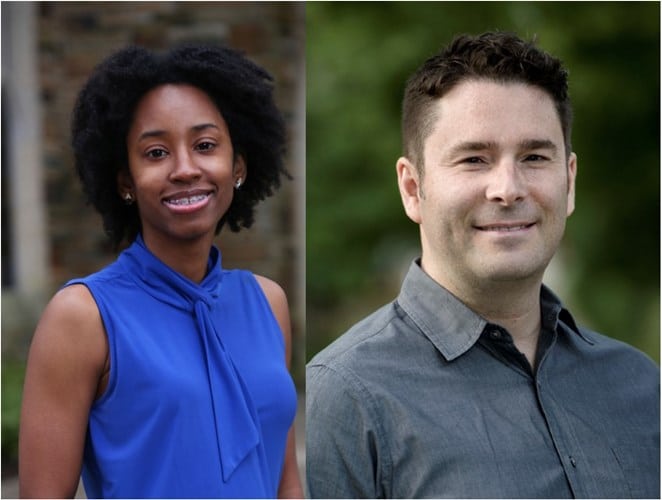
The Health Sciences Division of the Council on Undergraduate Research announces the 2021 recipients of its Mentor Awards, which honor exceptional mentoring and advising by higher education faculty across all subdivisions of health sciences. The awards consist of a cash award, a certificate of recognition, and a letter of commendation from CUR sent to each recipient’s institution.
Mentor Awardee, Early Career: Shana Stoddard (Rhodes College)
Mentor Awardee, Mid-Career: Trevor Day (Mount Royal University)
Mentor Awardee, Mid-Career: Katherine H. Ingram (Kennesaw State University)
Mentor Awardee, Advanced Career: Ben A. Bahr (University of North Carolina at Pembroke)
Shana Stoddard is assistant professor in the Department of Chemistry at Rhodes College in Memphis. She earned a BS in chemistry from Prairie View A&M University, an M Ed in curriculum and instruction from Freed-Hardeman University, and a PhD in chemistry and biochemistry from the University of Mississippi. She pursued postdoctoral work at St. Jude Children’s Research Hospital and Rhodes College. Stoddard’s research concentrates on molecular immunotherapeutics. She has mentored more than 40 undergraduate students, including those of underrepresented backgrounds pursuing STEM and health sciences pathways; nurtured connections among students and faculty of color; and promoted inclusive teaching strategies on campus.
Trevor Day is professor of physiology in the Department of Biology at Mount Royal University in Calgary, Canada. He earned a diploma in the emergency medical technician program at the Southern Alberta Institute of Technology, as well as a BS in psychology and a PhD in respiratory neurobiology from the University of Calgary. His research focuses on the coordination of the heart, lungs, brain, and kidneys in response to occupational and environmental stressors. He has primarily worked with third- and fourth-year undergraduates, infusing research into coursework, teaching a capstone seminar and other courses, and leading high-altitude research expeditions to the Everest Base Camp in Nepal.
Katherine H. Ingram is associate professor of exercise science in the Department of Exercise Science and Sport Management at Kennesaw State University in Georgia. She earned a BS in sport management from Tulane University, a MS in exercise physiology from the University of Nevada–Las Vegas, and a PhD in exercise physiology at Georgia State University. Ingram pursued postdoctoral study at the University of Alabama at Birmingham. Focusing on the impact of gestational obesity and inactivity on maternal metabolic health, she has mentored 35 undergraduate researchers, fostering multimentor models; cross-disciplinary connections; and participation in the entire research process that ranges from formulation of research questions and development of grant proposals to collection of data and communication of results.
Ben A. Bahr is the William C. Friday Chair and Distinguished Professor of Molecular Biology and Biochemistry at UNC–Pembroke. He earned a bachelor’s degree in molecular biology and biochemistry, as well as a PhD in chemistry, from UC Santa Barbara. Bahr’s research concentrates on Alzheimer-type pathology, traumatic brain injury, and related drug discovery efforts. He has mentored approximately 300 undergraduate researchers and coauthored publications with 72 undergraduate students, seeking to provide a solid foundation for their future studies and career paths as well as an inspirational model for faculty members who wish to improve their mentoring skills.
Founded in 1978, the Council on Undergraduate Research (CUR) focuses on providing high-quality and collaborative undergraduate research, scholarly, and creative activity. Among the many activities and networking opportunities that CUR provides, the organization also offers support for the professional growth of faculty and administrators through expert-designed institutes, conferences, and a wide-range of volunteer positions. The CUR community, made up of nearly 700 institutions and 13,000 individuals, continues to provide a platform for discussion and other resources related to mentoring, connecting, and creating relationships centered around undergraduate research. CUR’s advocacy efforts are also a large portion of its work as they strive to strengthen support for undergraduate research. Its continued growth in connections with representatives, private foundations, government agencies, and campuses world-wide provides value to its members and gives voice to undergraduate research. CUR is committed to inclusivity and diversity in all of its activities and our community.
CUR focuses on giving a voice to undergraduate research with learning through doing. It provides connections to a multitude of campuses and government agencies, all while promoting networking and professional growth to its community.


